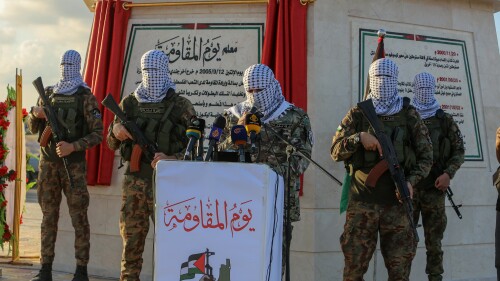The death of Yahya Sinwar, mastermind of the October 7, 2023, massacre and head of Hamas’s political bureau, marks a turning point in the Israeli-Palestinian conflict. Israeli forces eliminated Sinwar, who had orchestrated Hamas’s insurgency in Gaza since his 2011 release from prison during the Gilad Shalit prisoner swap. Sinwar’s removal disrupts Hamas’s leadership and raises critical questions about the effectiveness of past ceasefire demands and concessions.
Ceasefires aim to halt violence and open paths to dialogue. Yet militant groups like Hamas have exploited these pauses to regroup, rearm, and strengthen their positions. Sinwar’s rise exemplified how concessions can empower those committed to violence. Ceasefire periods allowed Hamas to rebuild infrastructure, enhance arsenals, and plan future attacks, prolonging the conflict and escalating the threat.
Reliance on ceasefires without dismantling the foundations of militancy creates a false sense of security. These temporary measures offer immediate relief but fail to produce lasting peace. Sinwar’s resurgence after 2011 underscores the risks associated with ceasefires lacking stringent enforcement and verification. They interfere with strategic objectives like dismantling terrorist networks by granting groups time and space to recover and prepare for further aggression.
Reliance on ceasefires without dismantling the foundations of militancy creates a false sense of security.
The elimination of Sinwar mirrors the fates of other high-profile militant leaders. The deaths of figures like Al-Qaeda founder Osama bin Laden, Iraq’s insurgent leader Abu Musab al-Zarqawi, Hamas founder Ahmed Yassin, and master bombmaker Yahya Ayyash disrupted their organizations but did not end the threats they posed. Bin Laden’s death dealt a blow to Al-Qaeda but led to decentralization and the rise of new factions. Yassin’s assassination led to short-term escalations before weakening Hamas’s leadership structure. These cases show that removing key leaders must be part of a broader strategy addressing the ideological and operational foundations of these groups. Targeted killings alone can lead to unintended consequences, such as the emergence of more radical elements or the continuation of violence.
Sinwar once quoted Imam Ali ibn Abi Talib (r. 632-661 CE): “There are two days in human life, a day when death is not your destiny, and a day when death is your destiny. I am not afraid of the first day because death is not my destiny, so no one can harm me. I am not afraid of the second day either, because if it is my destiny, I cannot prevent it.” His fatalistic confidence proved misplaced. Decisive action can reach even those who consider themselves untouchable.
Sinwar’s death calls for a critical reassessment of repeated ceasefire demands. Ceasefires should not be ends in themselves but tools managed carefully to prevent exploitation by militant groups. The tactical advantages gained during ceasefires—regrouping, rearming, and spreading ideology—undermine long-term peace efforts. Engaging in ceasefires can inadvertently legitimize these groups as political actors, eroding public trust in governmental strategies. Ensuring compliance from decentralized militant organizations is challenging, leading to breaches that reignite hostilities.
Preventing tactical exploitation requires robust monitoring and enforcement during any ceasefire.
The current moment offers an opportunity to rethink conflict approaches. A comprehensive strategy should combine sustained security measures with diplomatic efforts addressing the political, economic, and social factors fueling militancy. Preventing tactical exploitation requires robust monitoring and enforcement during any ceasefire. Avoiding actions that legitimize terrorist organizations while promoting legitimate political processes is essential. Transparent communication about security measures’ goals and outcomes can maintain public trust. International collaboration is vital to apply consistent pressure on militant groups and support initiatives addressing the conflict’s root causes.
Ultimately, ending an organization like Hamas requires decapitating its leadership, not negotiating with those who orchestrate massacres. Convincing the rank-and-file that their war goals are unattainable leads them to consider surrender or disarmament. Sinwar’s fate demonstrates that decisive action can overcome fatalistic beliefs and disrupt militant operations.
Continuing to rely on ceasefires without achieving core objectives only prolongs the cycle of violence. Perhaps it is time to acknowledge that ceasefires, when they enable enemies to regroup rather than secure peace, are not just ineffective—they are a dangerous illusion that delay victory and cost lives.








